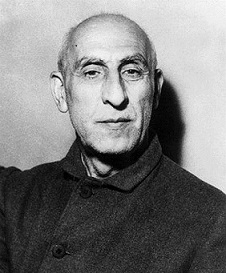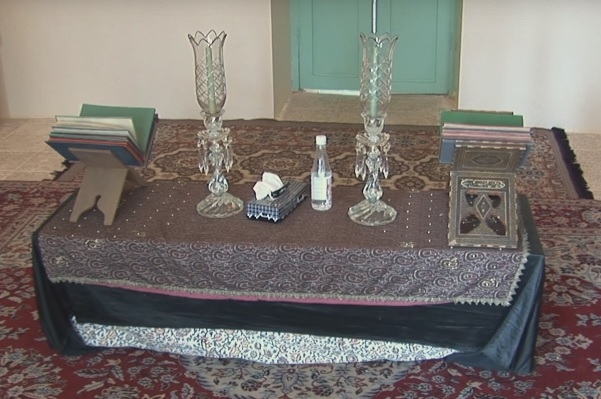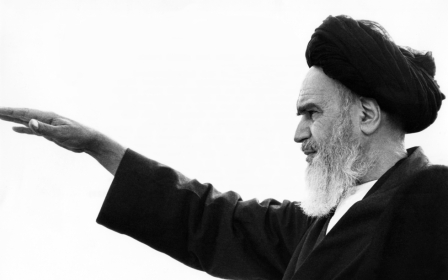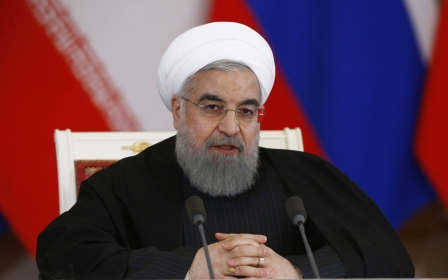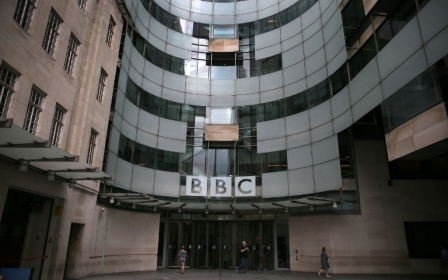Blame foreigners for disasters like the 1953 coup, yes, but Iranians must look at their own failings

Sixty four years ago, while hanging out with neighbourhood friends on Ray Street in Tehran, I saw a crowd of about 200 demonstrators shouting “death to Mossadeq” and “long live the Shah”. As a resident of the neighbourhood, I was surprised to see two notorious individuals leading the demonstrators. They were the kind of tough guys parents advised their sons to stay away from and shopkeepers had to pay them blackmail money to prevent their mischief.
When I returned home in early evening, my father informed me that Mossadeq’s home had been attacked and the Royal Guards had taken over the radio station
I heard older men watching the scene from the sidewalk telling each other that they were organised by the followers of Ayatollah Mohammad Behbahani, a well-known anti-Mossadeq cleric. Being a pro-Mossadeq high school student, I decided to follow the demonstrators out of fear and curiosity.
The crowd marched toward the parliament building, a couple miles away from our neighbourhood, where another anti-Mossadeq group carrying Ayatollah Kashani’s picture, had already congregated. Kashani was also an opponent of Mossadeq.
When I returned home in early evening, my father informed me that Mossadeq’s home had been attacked and the Royal Guards had taken over the radio station. The next day, Iranians learned that Prime Minister Mossadeq had been overthrown in a military coup. Informed Iranians suspected US and British involvement in the coup, but it took years before this suspicion was substantiated by credible evidence and testimonies.
In the documents about the coup released by the US State Department in July 2017, we learned that both Ayatollah Behbahani and Ayatollah Kashani, among others, had been paid, directly or indirectly, by the CIA to have their lumpen followers organised as the face of public support for the coup.
'Slapped by God'
It is worth noting that some clerics who opposed Mossadeq’s liberalism had either supported or remained silent bout the coup. Yet, during the revolutionary demonstrations of 1978-79, they routinely used public resentment about the episode in their anti-American propaganda.
Chief among these clerics was Ayatollah Khomeini who never mentioned Mossadeq’s name in his writings, sermons or interviews. Once in response to a journalist who inquired about his view of Mossadeq, he replied “the man you mentioned was slapped by God". In other words, God chose the CIA to punish Mossadeq. Khomeini praised Ayatollahs Kashani and Behbahani as defenders of Islam against nationalism and liberalism.
Today, Iranians are not permitted to visit Mossadeq’s grave. Even his family members have to obtain permission from security organs of the state to do so
In the intervening years, the Islamic Republic has oppressed Mossadeqists (liberal nationalists and social democrats) far more than the Shah ever did. Today, Iranians are not permitted to visit Mossaddeq’s grave. Even his family members have to obtain permission from security organs of the state to do so.
In January 1954 Mossadeq was tried in military court and condemned to three years of imprisonment. He spent the rest of his life under house arrest. Newspapers were not permitted to report his defence, but his followers published it in an underground print shop and secretly distributed it among interested Iranians.
In June 1954, at the end of my junior year in high school, I was arrested with a suitcase full of broadsides giving Mossadeq’s defence in the military court. At the time the military was in charge of dealing with political dissidents. I was interrogated by a colonel who informed me that I had broken the law and wanted me to tell him who had given me the pamphlets.
My refusal to reveal where I got the pamphlets qualified me for a few kicks, a dozen whippings and a couple months of incarceration in the juvenile section of Qasr prison. There was no formal charge or trial. The interrogator played both the prosecutor and the judge. He left the kicking and the whipping to the plain soldier who was standing behind me during the interrogation.
Years later, when attending college in the United States, I heard my instructor in an introductory international relations class describe the conflict between Iran and Great Britain over oil nationalisation and refer to Mossadeq as Iran’s pro-Soviet prime minister.
At the end of the class, I asked him on what basis he considered Mossadeq to be pro-Soviet? He said his impression was based on press coverage of Iran and the oil dispute during the period. I explained to him that Mossadeq was a liberal nationalist and the Tudeh (Communist) party of Iran used to describe him as “a running dog of American imperialism”. He was surprised to hear my remark and admitted that he had no expertise about Iran.
When I asked him why possession or distribution of Mossadeq’s defense was illegal, he slapped me in the face and said, 'It is none of your goddamn business'
That exchange motivated me to do my research paper for the class on how Mossadeq was portrayed in three American weekly news magazines - Time, Newsweek and the US News and World Report - during the 27 months of his premiership. The resulting findings convinced me that any reasonable reader of the articles could come to the conclusion that Mossadeq, a Swiss educated lawyer, was either naïve about international politics or sympathetic to the Soviet Union in the Cold War.
Many years later, William A Dorman, a journalism professor, and I collaborated in writing a book on the topic – The US Press And Iran: Foreign Policy And The Journalism of Deference. The book received good reviews and was used as required reading in many journalism and foreign policy classes. I was amazed that my fixation with the 1953 coup could actually bring me some income.
Cheap and easy
Over the past 64 years, Iranian, American and British scholars, journalists and political activists have done an outstanding job of producing a body of literature that exposed and documented the CIA and MI6 engineering of the coup. What is missing in this valuable literature, however, has to do with the question of why the coup succeeded so cheaply and easily.
For instance, why did Prime Minister Mossadeq and the parties supporting him have no plan to prevent or resist the coup? After all, several observers had warned the government about the likelihood of such a coup. To what extent was the fragmentation and ideological rigidity of progressive forces responsible for their vulnerabilities in facing the Pahlavi court and its domestic and foreign allies?
In the imagination of most Iranians, major events of their history over the past century are all the design of foreign powers
From 1941 to 1953, the educated middle and upper-middle classes were key players in Iranian politics. Why didn’t they form a coalition that could marginalise their ideological divisions and try to solidify and expand Mossadeq’s public support? Such issues or questions are absent in the literature about the coup.
It is utopian thinking to expect a world in which powerful states do not try to interfere in the affairs of weaker states when it suits their interests. By contrast, it is quite reasonable to assume that a democratically inclined popular movement’s unity of purpose and commitment to pluralism can discourage or contain adversaries to subvert its programme. However, in the imagination of most Iranians, major events of their history over the past century are all the design of foreign powers. Few believe that action or inaction of their own national leaders and domestic political forces had anything to do with path-breaking changes in their political life.
The Shah and Ayatollah Khomeini were vastly different in their personalities and sociopolitical orientations, but they never admitted making any mistake and habitually blamed foreign powers for the challenges they faced. They were also identical in rejecting the legitimacy of their native critics and often accused them of echoing the design of foreign adversaries.
The idea of looking into the mirror in search of answers to political weakness, vulnerabilities or failure does not exist in Iranian political culture.
In short, Iran’s progressive political and cultural forces failed to face the mistakes and misperceptions of their own activities during a decade of open political environment prior to the 1953 coup. It is difficult to deny that this historic failure to learn from their own past shortcomings led to the continuation of their fragmentation and ideological rigidity after the 1979 revolution and, thus, their unpreparedness to face the challenge from radical Islamists after the fall of the Shah.
Today, 70 percent of Iran’s 75 million population are under 40-years-old and the struggle for democracy in Iran continues. The success of the new generation of progressives depends on their willingness to learn from the mistakes and misperceptions of their parents and grandparents. They should keep in mind that opposing a particular dictator is not the same as opposing dictatorship.
- Mansour Farhang, a retired professor of international relations at Bennington College, was revolutionary Iran’s first ambassador to the United Nations but left Iran as a dissident in 1981.
The views expressed in this article belong to the author and do not necessarily reflect the editorial policy of Middle East Eye.
Photo: People armed with staves shout slogans during riots in Tehran in August 1953. (AFP)
Middle East Eye propose une couverture et une analyse indépendantes et incomparables du Moyen-Orient, de l’Afrique du Nord et d’autres régions du monde. Pour en savoir plus sur la reprise de ce contenu et les frais qui s’appliquent, veuillez remplir ce formulaire [en anglais]. Pour en savoir plus sur MEE, cliquez ici [en anglais].



